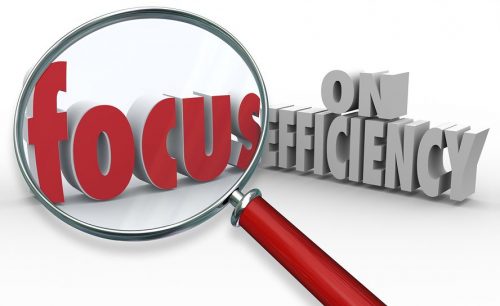Does it feel to you like it’s getting harder to focus? It doesn’t help that we’re inundated by 24/7 connections to information, people, news, and social media conversations. Is there a way we can practice focus and get better at it?
I hear complaints from my coaching clients about how easy it is to get distracted. Almost everyone struggles to get rid of distractions so they can focus and get work done.
What is less obvious is that focus and attention are skills that can be practiced and improved, the same skills as are involved in driving a car, cooking dinner, or playing a sport. To improve the ability to focus and successfully complete projects, you’ll need to keep in mind two important facts.
- The practice of focus cannot be forced. In other words, trying hard to concentrate interferes with paying attention. The result is frustration and a narrowing of vision. Instead, focus works best alongside interest and desire. It cannot be coerced. Focus needs to become a friend, one trusted to emerge as long as the interest and desire are maintained.
- The practice of focus requires a non-judgmental mindset, especially judging oneself. Getting angry for losing focus compounds the distractions that are in the way of success. On the other hand, keeping focus will cause a keen awareness of those distractions. So, being easy on oneself, not judgmental, and nurturing focus as a friend reveals the distractions that are unproductive, the ones to deal with.
Practice Makes Progress
One way to practice and improve ability to maintain focus is to approach tasks with the mindset of a learner.
Being a learner means that each time something pulls attention away, observe what that distraction is, and do so without judgment, stay detached. Shifts in attention are normal; only when they do not contribute to task completion are they distracting.
One example to practice learning to focus is when driving a car. Attention of the driver shifts continually from one thing to another to get to a destination. The more a driver pays attention to each shift, the more consciously and the more safely that person will arrive. The same applies to focus at work.
Any task—be it for work or sport—can be divided into a series of steps. The more awareness assigned to each phase, the more attention gets paid to details and thus, the more we recognize and learn about the variables that matter.
What’s it like where you work? Is it getting harder to focus on what truly matters? How do you maintain focus? I’d love to hear from you; You can contact me here or on LinkedIn.

Did You Enjoy This Article?
Join thousands of other smart business owners like yourself & get our Proffittable Times newsletter.
It's filled with actionable content you can apply immediately.
Sign up now to get started!
– Coach Nancy










